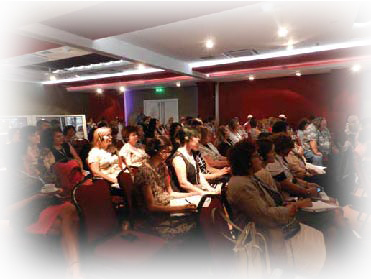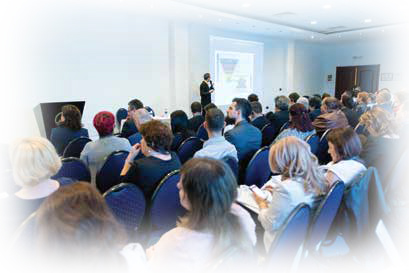









President of Scientific
Committee:
Prof. Ph.D. Daniela Tatiana Șoitu, "Alexandru Ioan Cuza Iasi" University
of Iaşi, Scientific coordinator of the EC2U Virtual institute for Good Health and Well-being";
Coordinator of EC2U Master program LIFELINE – "Lifelong Well-being and Healthy Ageing"
Members:
Prof. Dr. Clary Krekula, Departament of Social Work, Linnaeus University, Sweden
Prof. PhD. Florin Lazăr, Faculty of Sociology and Social Work, University of
Bucuresti, Vice-President of CNASR
Prof.Dr. Sarah Donnelly, Associate Professor of Social Work and Director of Global
Engagement at the School of Social Policy, Social Work and Social Justice, University College Dublin
Prof. Dr. Sarah Lonbay, Professor of Social Sciences and Social Care at the
University of Sunderland, UK
Prof.Ph.D. Conţiu Șoitu, Vice-Rector, Alexandru Ioan Cuza University of Iasi,
Romania
Prof. Dr. Vladimir Poroch, Vice-Dean of the Faculty of Medicine and Pharmacy, "G.T.
Popa" University of Medicine and Pharmacy, Iaşi
Prof. PhD. Doru Buzducea, Faculty of Sociology and Social Work, University of
Bucuresti
Lect. dr. Mihaela Zamfir, "Ion Mincu" University of Architecture and Urbanism Bucharest
Romania
Prof. Ph.D. Vincenzo Corsi, Department of Social Sciences, "G.
d'Annunzio" University of Chieti-Pescara, Italy
Lecturer Ph.D. Aurelia Curaj, Faculty of Sociology and Social Work, University of
Bucuresti, President of Geron Foundation
Prof. dr. José Luis Sarasola Sánchez-Serrano. Departamento de Trabajo Social y
Servicios Sociales, Universidad Pablo de Olavide, Sevilla, España
Co-presidents:
Prof.Ph.D. Conţiu Șoitu, Vice-Rector, Alexandru Ioan Cuza University of Iasi,
Romania.
Ing. Lucian Bala, CEO TZMO Romania, Bucharest
Members:
Mr. Alexandru Florescu, Asistent Manager, TZMO România, Bucharest
Mr. Costin Turcitu, President of TZMO Romania Foundation
Prof. Ph.D. Daniela Tatiana Șoitu, "Alexandru Ioan Cuza Iasi" University
of Iaşi, Scientific coordinator of the EC2U Virtual institute for Good Health and Well-being";
Coordinator of EC2U Master program LIFELINE – "Lifelong Well-being and Healthy Ageing"
Prof. PhD. Florin Lazăr, Faculty of Sociology and Social Work, University of
Bucuresti, Vice-President of National College of Social Workers of Romania
Assoc.prof. PhD. Romeo Asiminei, Dean of the Faculty of Philosophy and Social-Political
Sciences, "Alexandru Ioan Cuza Iasi" University of Iaşi
Assoc.prof. PhD. Mihaela Rădoi, Director of the Department f Sociology, Social Work and
Human Resources, Faculty of Philosophy and Social-Political Sciences, "Alexandru Ioan Cuza
Iasi" University of Iaşi
Mrs. Ofelia Popa, Computer engineer, Faculty of Philosophy and Social-Political
Sciences, "Alexandru Ioan Cuza Iasi" University of Iaşi
Identifying solutions for improving the standards of long-term services is a constant concern for our company. We analyze the mechanisms and practices for the development of this area, in the context of the current demographic changes.
If you have a pool of money set aside for retirement expenses, it could be a source of funds for long term care costs. Or if a loved one needs long term care, your income may be adequate to cover their expenses.
You may also plan to rely on family or friends. This can be a great solution for families committed to providing care, but it can be physically and emotionally demanding.
Medicare and Medicaid may contribute toward long term care expenses; however, there may be specific coverage limitations and asset requirements that you should be aware of.
If you qualify for long term care insurance, it can be a way to help pay for long term care services. There are also products that combine long term care protection with life insurance and annuities.
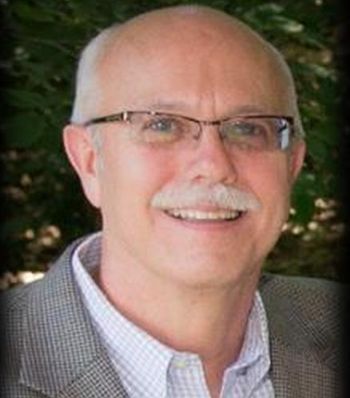
MPA, MA, Eden Educator
Gerontologist & Thought Leader
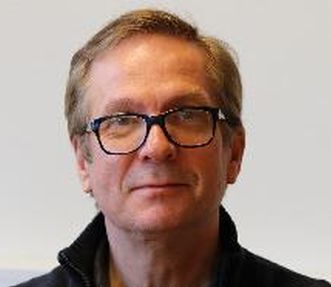
Norwegian University of Scence and Technology, Trondheim, Norway
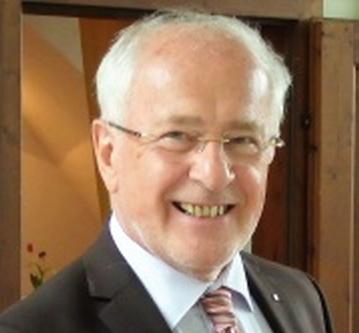
Former President of E.D.E., Education Officer of E.D.E., Austria
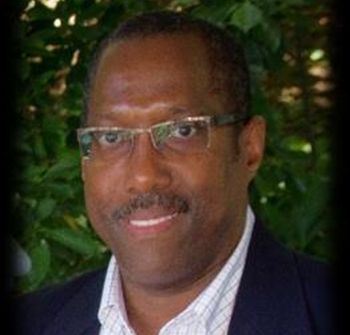
MPA, Eden Educator
Bilingual Coach/Mediator
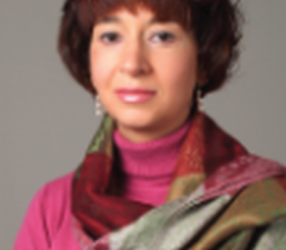
Conf. Univ. Dr.
West University of Timisoara
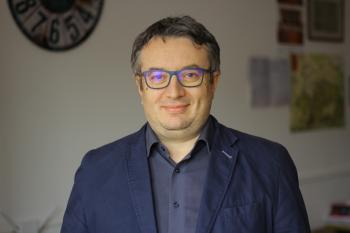
conferențiar universitar la Departamentul de Asistență Socială a Facultății de Sociologie și Asistență Socială
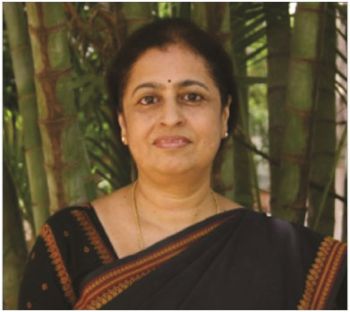
Co-Founder & Managing Trustee, Nightingales Medical Trust
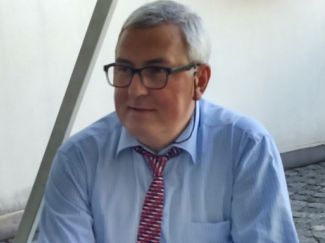
“Yellow Cross” CEO; Candidate of Economic Sciences and Social Economics of Tbilisi State University and Lomonosov University in Moscow
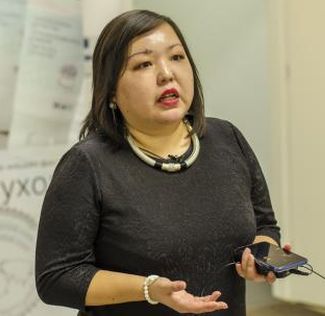
Head of the Laboratory of General geriatrics and neurogeriatrics
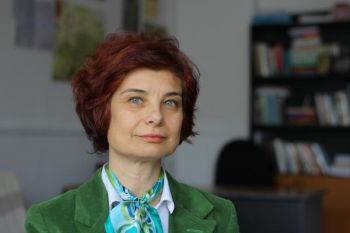
Este dezvoltarea serviciilor de îngrijire la domiciliu în mediul rural fezabilă? Studiu de caz judeţul Cluj
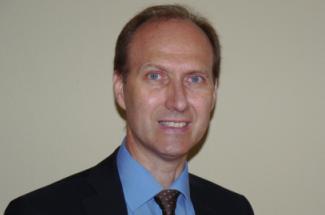
Germany
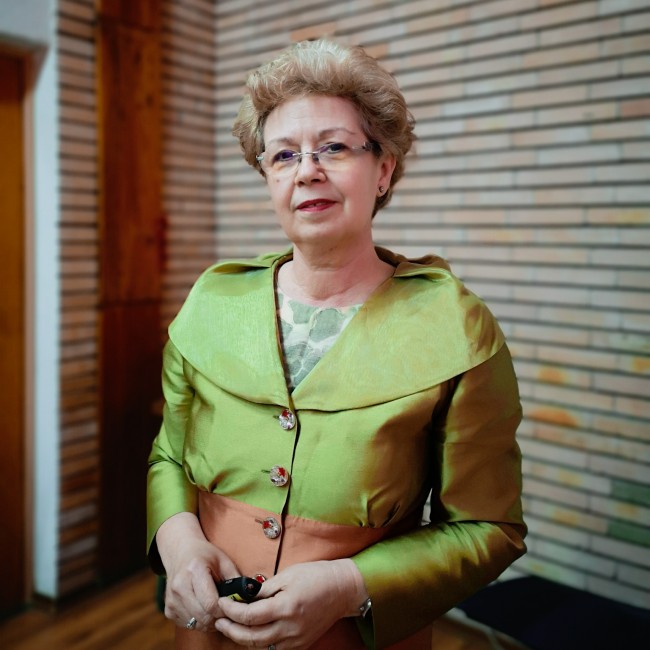
Lecturer at the University of Bucharest
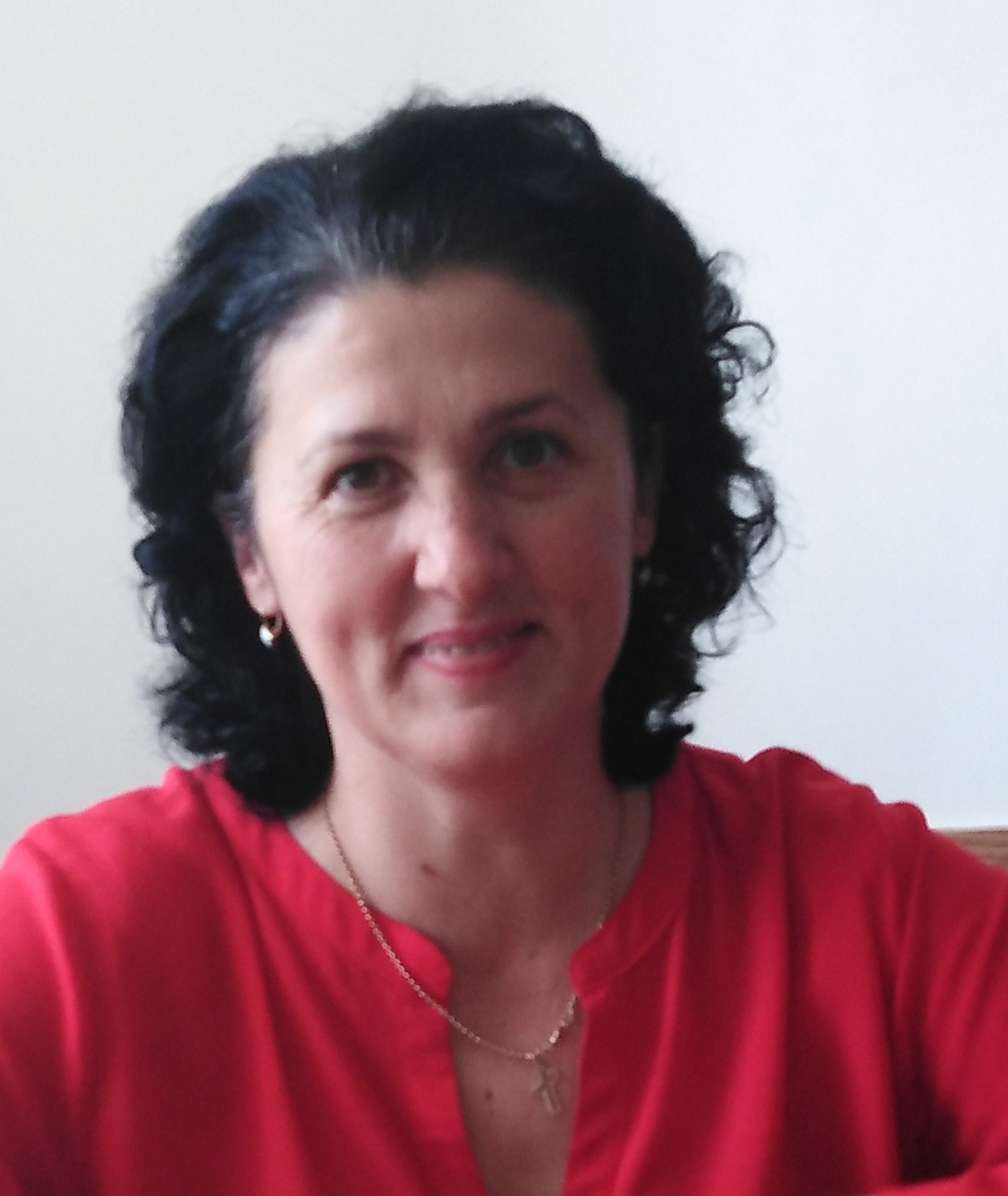
Director, UAMS Hunedoara
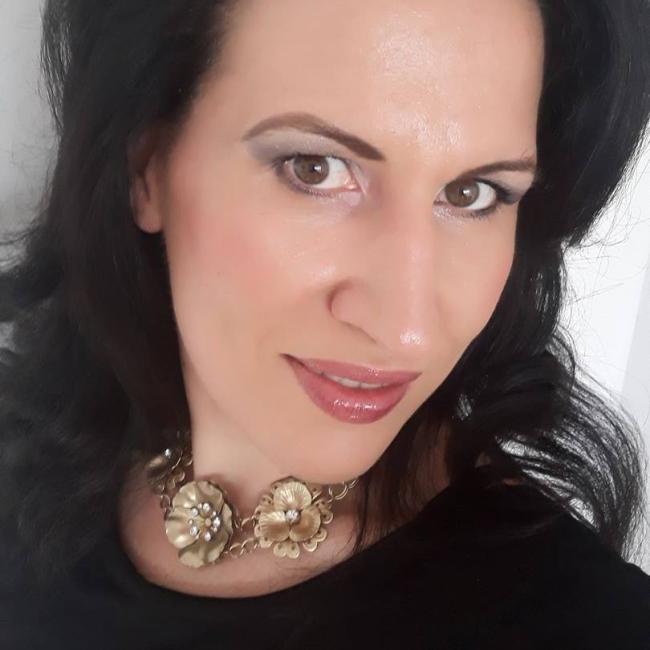
Lecturer PhD Arch.
"Ion Mincu" University of Architecture and Urbanism
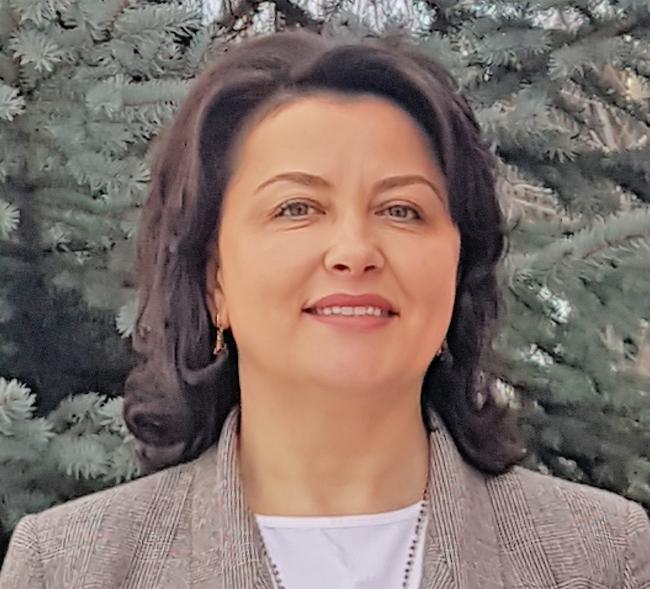
Alexandru Ioan Cuza University of Iaşi
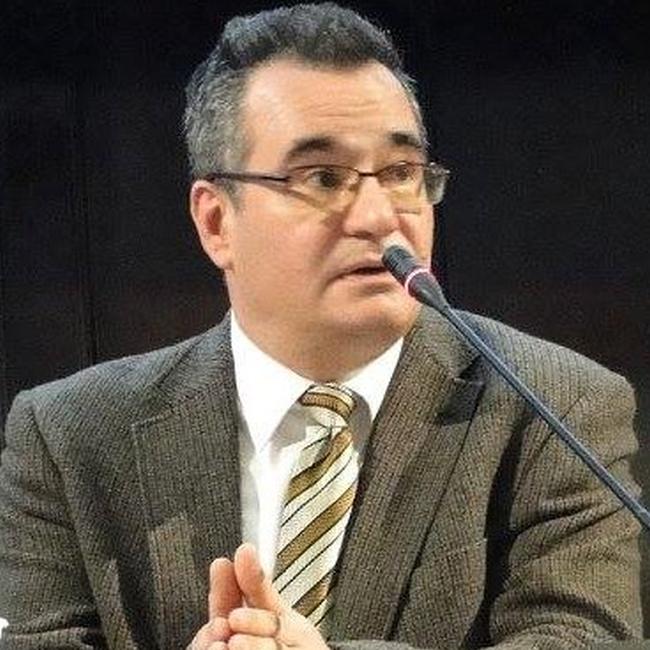
Alexandru Ioan Cuza University of Iaşi
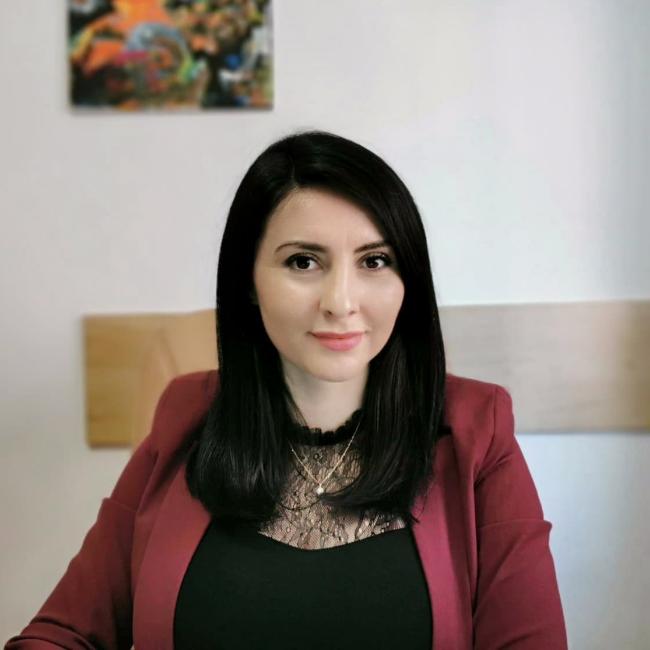
Seniors and People with Disabilities Branch Director at the Caritas Diocese of Iaşi
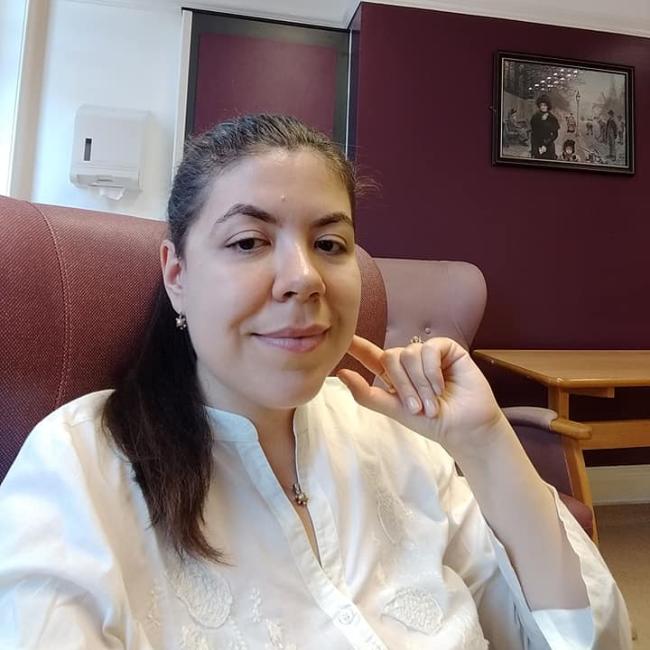
Honorary Clinical Senior Lecturer
Centre for Psychiatry, Imperial College London
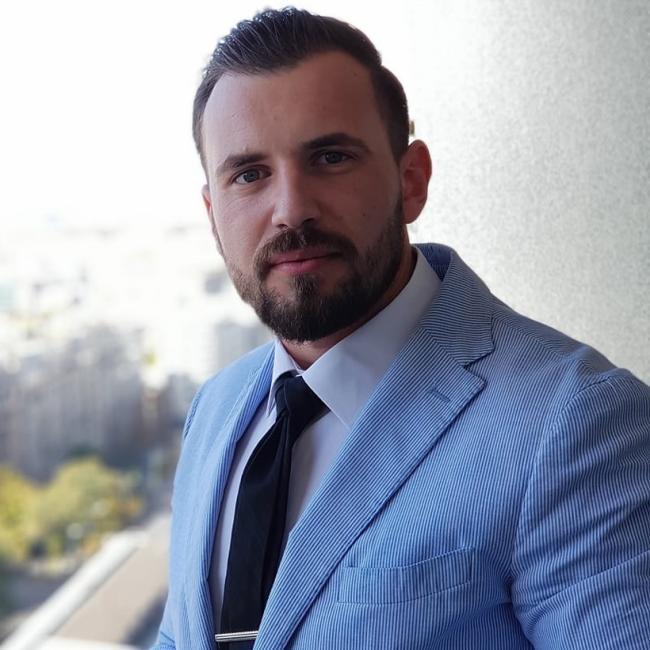
Administrator
Main Software Solution

MPA, MA, Eden Educator
Gerontologist & Thought Leader
Walter is a Managing Partner of WD International Consulting. He is committed to the mentoring and coaching of individuals with an emphasis on supporting organizations to empower and retain their staff. Walter is a national leader in the culture change movement and has the demonstrated ability to transform organizations to become person-centered.
As the former President & CEO of LeadingAge Georgia, the Georgia Institute on Aging (the education arm of LeadingAge) and the Center for Positive Aging (the consumer arm of LeadingAge) for 18 years, Walter is one of 5% of association CEOs who is a Certified Association Executive (via the American Society of Association Executives). Currently, he is a part-time instructor with the Gerontology Institute at Georgia State University in Atlanta.
Walter has worked with older adults for over 35 years. Along with developing and leading professional development and educational programs, he has made presentations at state, national and international conferences. He is passionate about facilitating the development of individuals and organizations, especially relating to quality, personcentered care and services.
He became a certified Eden Educator in order to engage and certify professionals and elders in the culture change movement. In 2008, he co-founded and still co-facilitates the state culture change coalition for Georgia.
Walter is an advocate for individuals living with dementia. He served as the Vice Chair of the Board of Directors of the national Dementia Action Alliance to support its development and successful first North American Dementia conference driven by individuals living with dementia. Walter most recently presented "Person-Centered Dementia Care: Living Fully with Dementia" at the Global Ageing Conference in Switzerland. He is the facilitator of the "Living Full with Dementia" track for the 2018 Southern Gerontological Society Conference. As a gerontologist and thought leader, Walter has provided leadership to various boards, task forces, committees, regulators, legislators, and legislative study groups. He has led the development of programs, regulations and legislation that positively affect the lives of older Americans. He is known as a connector and collaborator who supports the wellbeing of both elders and those working with them.
During his career, he served as the Administrator at Northminster Presbyterian Homes, Director of Assisted Living at Presbyterian Village, Director of Adult Day Services at the Alzheimer's Association/Georgia Chapter, Assistant Director of the Georgia Council on Aging, Administrative Director of Georgia Gerontology Society, and in various ministerial positions.
Significant national/international speaking engagements include Global Ageing/IAHSA Conference, LeadingAge, Pioneer Network, The Eden Alternative International Conference, Meals on Wheels Association of America, National Association of States United for Aging and Disabilities, National Association of Regulatory Administrators, National Alzheimer's Association, American Society on Aging, and American Association of Service Coordinators.
Professional education includes: Master of Public Administration, Gerontology/Non-Profit Management, Georgia State University; Graduate Certificate in Gerontology, Georgia State University; Master of Music Education/Church Music, Southern Seminary, Louisville, Kentucky; Master of Arts, University of Kentucky, Lexington, Kentucky.
Professional certifications include: Certified Association Executive, American Society of Association Executive; Eden Educator, The Eden Alternative International (also Certified Eden at Home Associate and Neighborhood Guide Associate); Certified Trainer in Total Quality Management for Healthcare, American Healthcare Association; Certified Retirement Housing Professional, University of North Texas.
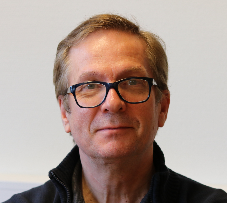
associated professor
Norwegian University of Science and Technology - NTNU
He has been working as a researcher and evaluator for many years in different fields in
Norway. He is teaching Social Educators and Social Workers at the Faculty of Health and Social
Science in topics as "User driven innovation" and "The Nordic welfare model".
Johansen has carried out several projects for both the central and local level of Government
in Norway. He has also practiced as an innovator from leading positions in the executive
system. In recent years, he has been engaged in how to empower users, their organizations, and
bring about collaboration between the service providers and users, relatives and volunteers.
E-mail address: karl.j.johansen@ntnu.no
By Karl Johan Johansen
The Scandinavian health and welfare model has provided high-quality health services to
citizens who have needed this, based on their respective health problems and needs. However,
the services are staff intensive and financially demanding both in terms of recruiting
personnel and financing.
The current situation with major changes in the population is challenging. There are an
increasing need for health and welfare services and, not least, long-term care services. At
the same time, there are problems with access to enough qualified personnel and sufficient
funding. It is a challenge to renew the system and find sustainable solutions.
So far, the strategy has been to transform and improve the model from a model with mainly
public services, into a model with more private services and collaboration and co-production
between different actors and sectors. The intention is to develop a more flexible model
without the actual basic values being lost - "that the welfare society ensures that all its
citizens are taken care of and that there is room for everyone". It is also emphasized that
the service recipients and their relatives are getting more influence, and that their
experience and knowledge is taken into account in the continuous improvement process.
The presentation will focus upon how the situation in the Norwegian LTc model can be
understood, based upon scientific facts, and how these facts implicates change in the system
at different levels?

Former President of E.D.E., Education Officer of E.D.E., Austria
Director Edgar Führer is currently E.D.E Education officer and member of the E.D.E. - he is
also a founding member of the EDE. and a founding member of the Austrian umbrella organization
- there he was the long-term vice president and currently he is its honorary
president.
He is the founder of the Working Group in Lower Austria (ARGE NÖ Heime) and its
longtime chairman.
After many years in the printing industry, he moved to the health and social sector and also
completed a corresponding training at the "Cardinal King Academy" in Vienna in the
field of social management.
For more than 20 years he managed a foundation for nursing and care facility and was also very
active as a consultant and project developer for health policy. The promotion of Palliative
care has always a priority. In his politically responsibility for the health sector of
the region Waldviertel three hospitals (with eight departments) were built. One of this
hospital is a psychosomatic center and the installation of this facility meant a major health
care reform for the region and he worked as CED and after that he was the chairman of the
supervisory board of this psychosomatic center. The establishment of a neurological
rehabilitation clinic goes back to his initiative.
Now he is working on the development of the Erasmus project for training of professionals
involved in social and health care.

doctor, professor
CONTACT
ADDRESS: Nightingales Medical Trust
8P6, 3rd A Cross, East of NGEF, Kasturingar, Bangalore 560043
TELEPHONE: 91 80 42426565 / 42426500
FAX: +91 80 42426575
EMAIL: managaingtrustee@nightingaleseldercare.com, nightingalesmt@gmail.com
WEBSITE: http://www.nightingaleseldercare.com
Dr Radha S Murthy
The elderly population of India has increased from 77 million in 2001 to 104 million in 2011. By 2050, this population is likely to increase by three times to reach around 300 million, accounting for 20 percent of the total population of the country.
Increased life expectancy, rapid urbanization and lifestyle changes have led to an emergence of varied problems like physical and mental health problems, financial insecurity, elder abuse, social isolation, loneliness and housing. Adding to this the changing family structure from joint families to nuclear family.
The needs of India's older adults are unique. Owing to our society's diverse cultural and socioeconomic composition, they are also complex. Our elderly segment must thus be addressed at many levels. This warrants adopting a holistic and comprehensive approach involving the elders, their families, community and the government.
In my presentation, I will talk about the various innovative support systems that Nightingales Medical Trust has successfully established to strengthen health care focusing on dementia, facilitate economic empowerment, combat elder abuse and promote social integration benefiting over 800 elders every day . The models are sustainable and scalable involving diverse stakeholders so that the needed momentum for the care of the elderly is reached, their rights are protected and a dignified and fulfilling life is ensured.
Dr. Radha S. Murthy, an alumnus of St. John's Medical College, Bangalore has a brilliant academic career to her credit. An eminent doctor with over 30 years of medical experience, she is also a recipient of the 2003 Rajyothsava Award conferred by the State of Karnataka in recognition of her services.
AWARDS
• KLN Award for Pioneering Contributions to Elder Health Care (2015)
• Namma Bengaluru Award (2011)
• Vayoshreshtha Samman Award (2009), Ministry of Social Justice and Empowerment, Government of India
• Citation of Honour (2006), IAHSA Excellence in Ageing Service Award, International
Association of Homes and Services for the Ageing (IAHSA), USA
• Rotary Service Award (2005) for Excellence among Voluntary Organizations
• Paul Harris Fellow (2005), Rotary Foundation, India
• Rajyotsava Award for Community Services (2003), Government of India
• Award for Vocational Excellence (1999), Rotary Bangalore Raj Mahal Vilas (India)
MEMBERSHIPS
• International Federation of Ageing (IFA), Canada
• Member, Elders Task Force of the State Government (2011) under the Chairmanship of the
Chief Minister of Karnataka to Monitor and Implement State Policy for Older Persons
• President, Alzheimer's & Related Disorders Society of India, Bangalore Chapter
PROJECTS
|
TITTLE |
DESCRIPTION |
DURATION |
|
Nightingales Home Health Services (NHHS) |
Leading home health care provider with a wide range of services. NHHS provides a comprehensive, round the clock menu of home medical services by qualified and experienced doctors, paramedics and nurses. This was the first service of its kind in Bangalore. |
1996 - 2014 |
|
Nightingales Elders Enrichment Centre (NEEC) |
It is a unique day care centre for senior citizens; a place where elders gather and engage in a wide range of activities designed to meet their physical, emotional and social needs. Services like Yoga, talks & lectures, music recitals, memory exercises, physiotherapy, customised fitness programmes are provided to meet the varying needs of the elderly. |
1999 - Ongoing |
|
Nightingales Life Saving Services |
Awareness and training persons in Cardio Pulmonary Resuscitation (CPR) techniques and basic First-Aid |
2000 - Ongoing |
|
Elders Helpline |
A joint effort by Nightingales Medical Trust and Bangalore City Police. First-of-its-kind service in Bangalore, providing assistance to all senior citizens living within city limits. The toll-free number 1090 dedicated to help elders in distress has a team of committed social workers, counsellors, legal professionals and police working behind it. All the services at this project are free. |
2002 - Ongoing |
|
Sandhya Kirana (Two Centres) |
Established in partnership with Municipal Corporation - The Bruhat Bangaluru Mahanagara Palike (BBMP) - A unique day care centre for the under privileged elderly for skill development and income- generation activities |
2004 - Ongoing |
|
Steady Steps |
Fall prevention and post-fall management exclusively for older people through physical exercises, counselling and rehabilitation with special emphasis on falls. Aims to restore the highest possible level of functional capacity in elderly and helps them advance into old age with maximum mobility and fitness without drugs. |
2004 - Ongoing |
|
Nightingales Dementia Day Care (Five Centres) |
Day care centre for people with dementia. The programme focuses on the client's abilities and aims to promote independence in daily living. Experts provide rehabilitative care through physiotherapy, occupational therapy and speech therapy with prior appointment. |
2007 - Ongoing |
|
Mobile Memory Screening |
Screening unit to detect dementia early and to provide further help and assistance for persons found positive through the screening, and also to provide memory screening services to elderly persons (high risk age group for Dementia) at their doorstep in a comfortable atmosphere. |
2010 - Ongoing |
|
Nightingales Centre for Ageing and Alzheimer's |
India's first and only comprehensive residential care facility for people with dementia. 100-bedded centre with all the required facilities under one roof including assessments, psychosocial interventions, physiotherapy, speech therapy, occupational therapy, caregiver training and support |
2010 - Ongoing |
|
Nightingales Jobs 60+ |
Aims at improving the quality of economically insecure older persons by enhancing their skills and fitness and facilitating job opportunities. Training is provided in computer literacy, accountancy, physical fitness and soft skills to adapt them to the present day changed working environment. An employment bureau functions at the Centre to liaison with potential employers and assist the trained elders get suitable placements. |
2012 - Ongoing |
|
ETCM-Nightingales Dementia Care Centre |
India's first tele-medicine enabled residential care centre. It is a 50- bed facility set up based on hub and spokes model with Nightingales Centre for Ageing & Alzheimer's as the hub. The aim of the project is to make dementia care affordable and accessible. |
2014 - ongoing |
|
Nightingales Trust Bagchi Centre for Active Ageing |
This activity based Centre, with comprehensive facilities and services, all under one roof in an attractive ambience will be the first of its kind in India. With a holistic approach, this Centre aims to bring a lifestyle modification and ensure health and happiness of the elderly. Among other socially enriching services, the focus will be more on minimizing the risk of Dementia, controlling Hypertension, Diabetes, Depression and prevention of falls in a research oriented method. This Centre is set up based on the ThinkingFit research study. |
2014 - ongoing |
|
Nightingales Trust – Tanya Mathias Elder Care Centre |
This is a 25-bed facility for elderly women with Dementia based on the hub and spokes model with Nightingales Centre for Ageing & Alzheimer's as the hub. |
2018 - ongoing |
|
Regional Resource and Training Centre |
Aims to build the capacity of NGOs engaged in Age Care through series of workshops, training and awareness programmes. RRTC liaises with State Governments with specific reference to implementation of Maintenance and Welfare of Parents and Senior Citizens Act 2007 and National Policy on Older Persons. |
2012 - Ongoing |
|
Clinical Research Centre |
Research goals are to improve the early diagnosis of dementia. Develop evidence-based pharmacological and psychosocial therapies for Alzheimer's disease. Translate clinical research in dementia into strategies for prevention and healthy ageing. |
2012- Ongoing |
• GRANTS
1. CENTRAL GOVERNMENT
– Sandhya Kirana – as multi service centre under the Integrated Programme for Older
Persons (IPOP)
– Dementia Day Care Centre – for running day care centre with dementia under the
Integrated Programme for Older Persons(IPOP)
– Regional Resource and Training Centre (RRTC), Ministry of Social Justice and
Empowerment
2. STATE GOVERNMENT OF KARNATAKA
– Elders Helpline project in collaboration with Bangalore City Police
– Sandhya Kirana project in collaboration with the Bruhat Bangalore Mahanagara Palike
(rent free premises)
3. HELP AGE INDIA – ARDSI
– Community screening programs were conducted from April 2011 to April 2012
– About 3000 elderly were screened from various old age homes and senior citizen forums in around Bangalore
4. CORPORATE SOCIAL RESPONSIBILITIES
– Goldman Sachs
– Duetsche Bank Operations International
– Thomson Reuters
– TESCO
– IBM
– CISCO
INVITED TALKS (Selected talks on Dementia)
Buildings and Therapeutic Physical Environment-An Indian Perspective, Global Alzheimer's Research
Summit (2011), Spain
Teledementia- A Novel Approach to Dementia Care, XVI ARDSI National conference (2011), Pune, India
Holistic Approach to Dementia Care, Cognitive Ageing and Epidemiology (2012), University of
Edinburgh, UK
Dementia Risk Reduction –A Working Model from India Lifestyle Approaches for Prevention of
Alzheimer's Disease conference (2012), Perth, Western Australia
Setting Up Care Services for Dementia in India, World Federation of Neurology Conference (2013), Bangalore, India
POSTER PRESENTATIONS
Sundaram. R, Hegde. S, Chinnaswamy. S, Murthy. R., (2011) Teledementia: a novel approach to dementia care. Global Alzheimer's Research Summit, Madrid, Spain
Murthy. R, Hegde. S, Chinnaswamy. S, Sundaram. R, Muddapur.P.,(2012) The effect of culture based comprehensive psychosocial care program on outcomes in residential patients with dementia-An indigenous model. Lifestyle Approaches for the Prevention of Alzheimer's Disease Conference, Perth, Australia.
Murthy. R, P Muddapur, Hegde. S, Chinnaswamy. S, Sundaram. R.,(2012) Rural India: Dementia Exists Here too!! Rural model for Dementia care. Lifestyle Approaches for the Prevention of Alzheimer's Disease Conference, Perth, Australia.

Formerly, David was the Executive Director of Lutheran Towers, a 203-unit high-rise affordable housing community located in the heart of Midtown Atlanta. He led a transformative journey at Lutheran Towers for more than thirteen years.
David developed a strong management team and staff who were encouraged to explore and grow, and empowered to work together to create and implement innovative programs and services. They developed successful care partnerships which provided the Elders living in the affordable housing setting with one of the strongest supportive service programs in the country. Over half of David's staff were certified Eden Associates. This is yet another sign of his commitment to the person-centered philosophy. David has been featured in the "Wisdom" section of the national magazine, "FutureAge", for making a difference through servant leadership.
As a managing partner of WD International, LLC, David is committed to the mentoring and coaching of individuals with a focus on their professional and personal development. David has a demonstrated ability to connect with people from diverse backgrounds and cultures.
He has presented various workshops for such organizations as The Eden Alternative International, Pioneer Network, LeadingAge (National), National Affordable Housing Management Association, LeadingAge Georgia, Georgia Gerontology Society, and South Carolina's State Conference on Aging. David has served on the Board and public policy committee of LeadingAge Georgia. On a national level, he has served on the LeadingAge National House of Delegates, Public Policy Congress, Nominations & Awards Committee and the LeadingAge National Ethics Commission. In addition, he has served on the national Board of Directors of CCAL – Advancing Person-Centered Living.
As part of his commitment to individual/staff development, David has served as guide/instructor for the LeadingAge Georgia Leadership Academy. On a national level, he has served as a Leader-in-Residence for the LeadingAge national Leadership Academy, where he shared his experience and advice to emerging leaders from a variety of organizations from across the U.S.
Over the course of his career, David has held the position of V.P. of Members Services for LeadingAge Georgia, Program Analyst for the Office of Inspector General for Health and Human Services, and various positions with the IBM Corporation. His last position with IBM was as Central Operations Team Leader for Latin America.
David holds a Bachelor of Arts in Spanish/Business Administration and a Master of Public Administration (MPA) with a concentration in nonprofit management. His other credentials include Certified Aging Services Professional (CASP), Certified Professional of Occupancy (CPO), Certified Eden Alternative Associate, and Certified Eden Educator. Most recently, David completed Dispute Mediation training and is registered with the Georgia Office of Dispute Resolution (GODR). He is fluent in both written and spoken Spanish.

"Yellow Cross" CEO.
Candidate of Economic Sciences and Social Economics of Tbilisi State University and Lomonosov University in Moscow; Member of the European Association of Directors of Long-Term Care Services for the Elderly. Also member of the Presidium of the Moscow Red Cross and the Board of Non-Profit Partnership "The World of the Older Generation".
Akhmeteli Ramaz Otarovich was awarded with a Medal of "Honor and Benefit" and
"Medal of the Russian Red Cross."
The topic of the report "Challenges of population aging and answers to them: the Russian
perview field".
Theses:

Doctor-geriatrician
Head of the Laboratory of General geriatrics and neurogeriatrics
candidate of medical Sciences, associate Professor of diseases of aging faculty of additional professional education
Topic of report
Sharashkina NV, Merkusheva LI, Runikhina NK.
Russian Gerontology Clinical Research Center, Pirogov Russian National Research Medical
University of Ministry of Healthcare of the Russian Federation, Moscow,Russia
Background: Since chronic diseases potentiate the adverse effects of each
other, their effects may eventually lead to new clinical phenotypes, increasing susceptibility
to pathology and loss of autonomy. The complexity of the assessment and the lack of clear
criteria for comorbidity make it one of the main problems for clinicians and researchers
Purpose: The purpose of our study was to determine the prognostic significance of the main
geriatric syndromes and age-related diseases for long-term care.
Methods: 5678 patients aged 60 years and older (mean age 71 ± 0.1 years, 72.3% women and 27.7%
men) were included in the prospective study (3-years follow up). We estimated the presence of
any chronic diseases and geriatric syndromes. To identify the main geriatric syndromes, we
used the questionnaire validated in Russia. Primary end-points were all-cause mortality, and
Kaplan-Meier analysis was applied to evaluate 3-years total mortality.
Results: During 3-year follow-up, 1332 (23.5%) patients developed functional deficits:
mobility and functional activity decreased; as a result, patients passed under long-term care
at home. Among age-related diseases which determined the loss of autonomy chronic obstructive
pulmonary disease (COPD) and myocardial infarction (MI) were noted significantly (p< 0.05).
While diabetes mellitus and smoking were found as independent predictors of 3-years mortality.
Patient with a history of weight loss falls, depressed mood and cognitive impairment more
often end up in "low mobility" group at the end of evaluation compared to the main group
(p < 0.05). The number of patients with frailty syndrome among patients who have
transferred to a "low mobility" group was almost twice higher than in the main group, 42% and
26%, respectively (p <0.0001).
Conclusions: COPD and MI are factors determining the loss of autonomy in older adults patients
in Russia. Diabetes mellitus and smoking are independent predictors of 3-years total mortality
in these pts. Among geriatric syndromes: malnutrition, falls, depression and cognitive
impairments were noted significantly.

senior lecturer
West University of Timisoara
University for Medicine and Pharmacy "Victor Babes", Timişoara, Romania) / Dipl. in Caritas Science and Christian Social Work (Albert Ludwig-University, Freiburg i. Br., Germany), works as senior lecturer at West University of Timisoara, Faculty for Sociology and Psychology, Social Work Department
Aurora Carmen Bărbat, M.D. University for Medicine and Pharmacy "Victor Babes", Timişoara,
Romania / Dipl. in Caritas Science and Christian Social Work (Albert Ludwig-University,
Freiburg i. Br., Germany), works as senior lecturer at West University of Timisoara, Faculty
for Sociology and Psychology, Social Work Department. Has published 3 books, ca. 50 articles
& chapter books in scientific (inter)national volumes and journals, covering areas such as
coping with illness, social work, addictions, spirituality as coping. Has also a lot of
participations at national and international socio-medical and psycho-spiritual trainings,
research programs and conferences, has organized scientific events, being member of Romanian
and international scientific organizations including BCE (Association of Bioethicist in
Central Europe), ESCT (European Society for Catholic Theology), Institute for Social and
Political Research, Romania, CONEM (Romania Biotechnology and Environmental Sciences Group),
and Romanian Association for Gemotherapy and Homeopathy.
Email:
carmen.barbat@gmail.com
aurora.barbat@e-uvt.ro
The study attempts to highlight the bond between natural sciences such as epigenetics and
humanities when analyzing the complexity of end-of-life (EOL) challenges. The main aim of the
paper is to underline that combining the collective wisdom of science and building solid
transdisciplinar therapeutical teams, is actually the key toward a fully understanding of EOL
challenges. The qualitative method used for this task is based on a thematic synthesis using
an body of (electronic) researches.
We conclude that:
Key words: end-of-life, coping, communitarian therapy, holistic approach.

conferențiar universitar
Departamentul de Asistență Socială a Facultății de Sociologie și Asistență Socială
Paul-Teodor Hărăguș este conferențiar universitar la Departamentul de Asistență Socială a Facultății de Sociologie și Asistență Socială. Este sociolog (cu studii de doctorat încheiate în 2008, în Sociologie, cu titlul ”Folosirea timpului și distribuția sarcinilor domestice în familia din România”). Este interesat de teme de cercetare din domeniul studiilor familiei din România, populație, politici sociale și probleme ale tinerilor. Cu o experiență de peste 18 ani în activitatea didactică predă cursuri de Introducere în Sociologie, Sociologia Copilăriei, Evaluarea Politicilor și Programelor Sociale, Statistică Avansată, Proiectarea și Analiza Bazelor de Date Sociale.
Haragus Paul Teodor; Haragus Mihaela
Family solidarity has distinct motivations and manifestations in different social strata and the socioeconomic status influences the intensity of intergenerational solidarity. From the reciprocity and altruism approaches, working class families are more involved in intergenerational exchanges than the upper-class families. We can approach downward intergenerational solidarity from the perspective of status reproduction: parents invest in their children through intergenerational transfers to avoid their downward social mobility. Consequently, working class parents offer less financial support to their adult children, compared with upper class parents. Most approaches (altruism, reciprocity, or status reproduction) suggest more instrumental support in families with lower socioeconomic status.
We have followed the link between offering financial, instrumental, and emotional support, both from the parents to their adult children and vice versa, and the level of economic wellbeing of the provider. Our intention was to investigate how social class and mobility are constructed through intergenerational relations.
To fulfil our intention, we used the data from Generations and Gender Programme (GGP) Wave1, for two eastern-European countries (Bulgaria and Romania), focusing on three forms of support provided to family members: financial, emotional and instrumental. We have constructed a synthetic index of material wellbeing, using several items from the GGS questionnaire, combining income and expenditure approach: total household income, two indicators of the ability of household to make its ends meet, one indicator that captures evaluation of the household ability to overcome financial difficulties and one indicator regarding the satisfaction with the housing.
For the support from parents to their adult children we have selected from the original samples those respondents that have at least one child over 18 years, while for the support from adult children to their parents we have selected those respondents that have at least one parent alive.
Analysis of data for Romania and Bulgaria shows that intergenerational solidarity seems to function distinctly in different social strata. We have shown that a high level of material wellbeing (coupled with a high level of education) increase the odds of providing financial support to an adult child, both in Romania and Bulgaria, but for the emotional support the effect was found only in Romania. Regarding instrumental support offered to adult children, we found a statistically significant effect only in Bulgaria: those with a higher level of material wellbeing are less likely to offer instrumental support to their descendants. This confirms the idea that persons with a high socioeconomic status (linked with high economic wellbeing) offer less downward intergenerational instrumental support; this appears to be a form of support for lower social classes. Same effects were found regarding upward intergenerational transfers: a high level of material wellbeing is associated with higher odds of providing financial and emotional support to their parents and with lower odds of providing instrumental support (only in Bulgaria). We have found that both downward and upward financial support is more intense in case of persons with higher economic wellbeing.

conferenţiar dr. în cadrul Catedrei de Asistenţă Socială
Facultatea de Sociologie şi Asistenţă Socială, Universitatea Babeş-Bolyai Cluj-Napoca
Este licenţiată în asistenţă socială şi drept, doctor în sociologie. Domenii de interes şi cercetare personală: cercetări comparative în domeniul problemelor sociale şi al politicilor sociale (în special politica socială de sănătate, problematica sărăciei, categorii de persoane expuse riscului marginalizării şi/sau excluderii sociale), noi perspective de abordare în domeniul asistenţei sociale, analiza legislaţiei în domeniul asistenţei şi protecţiei sociale (intenţii şi efecte), dezvoltare comunitară - strategii alternative şi posibilitatea creşterii eficienţei lor.
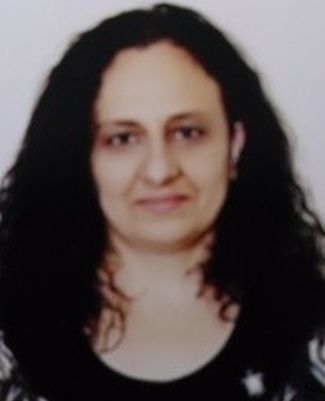
Cadru didactic asociat, doctor în Sociologie
Universitatea "Babes-Bolyai" Cluj-Napoca, Facultatea de Sociologie şi Asistenţă Socială
Agenția Județeană pentru Plăți și Inspecție Socială Cluj
Șef serviciu Inspecție Socială
Str.G.Coșbuc nr.2
Tel. 0744 763199
Licențiată în drept și psihologie, master în asistență socială, doctor în sociologie;
Adina Rebeleanu, Universitatea Babeş-Bolyai, Facultatea de Sociologie şi Asistenţă Socială
Paula Nicoară, Agenţia Judeţeană pentru Plăţi şi Inspecţie Socială, Cluj
Responsabilitatea APL pentru organizarea serviciilor sociale destinate persoanelor vârstnice este consacrată legal prin legea cadru a asistenţei sociale. Disparitatea urban - rural în acoperirea cu personal de specialitate, organizarea spas-urilor, existenţa serviciilor destinate vârstnicilor este o realitate.
Pentru a veni în întâmpinarea nevoilor de îngrijire la domiciliu a persoanelor vârstnice, în 2018 ministerul de resort a lansat un program de interes naţional al cărui scop declarat este creşterea calităţii vieţii persoanelor vârstnice dependente prin dezvoltarea serviciilor publice comunitare de îngrijire la domiciliu.
Prezentul demers analitic vizează realizarea unei radiografii la nivelul unităţilor administrativ teritoriale din mediul rural, Judeţul Cluj. Sunt analizate modul de organizare/reorganizare a serviciilor publice de asistenţă socială conform prevederilor legale, calificarea personalului angajat şi modalitatea în care la nivelul acestor comunităţi rurale se gestionează problematica persoanei vârstnice dependente.
Ne situăm în logica abordării calitative din perspectiova analizei critice. Utilizăm analiza de documente legislative ce pregătesc demersul implementării măsurilor preconizate prin PIN, analiza bazelor de date existente la nivel local cu privire la numărul persoanelor vârstnice, evaluarea acestora, existenţa personalului de specialitate, organizarea/absenţa SPAS-urilor în unităţile admnistrativ teritoriale ale judeţului, intenţii de accesare a PIN în vederea organizării serviciilor comunitare la domiciliu, obstacole în calea înfiinţării acestora.

Manager of 4 home care institutions

MD, PhD
Lecturer at the University of Bucharest
Gerontology and geriatrics at Geron Foundation
Physiological, psychological, social and cultural approach shows a heterogeneous old
population.
Ageing involves an individual functional decline modeling stress adjustment and
“frailty” is addressed to older persons with high vulnerability. A research
concerning frailty as a physical, psychological, cognitive, functional, social and
environmental interaction result is essential for a better understanding Ageing.
Although frailty of older people can be associated with less capacity in normal systems,
clinic conditions and geriatric syndromes are very complex.
Comorbidity, disability and frailty may be apart or simultaneous entities to older person and,
a multidimensional evaluation or a comprehensive geriatric assessment directing a decision
making in geriatrics is crucial. There is a geriatric challenge for this complexity including
many medical and social interaction concerns.
Geriatric services are able to respond to this complexity by assessment approaching,
multidisciplinary team, and multidimensional interventions.
There is no always clear how specific interventions or care approaches “make the
difference” for a patient or a group. Clinic complexity and comorbidity make the older
person to be excluded from many clinic trials.
Although is seen as common, frailty at longeviv people should be carefully approached. A
multidisciplinary approach takes us out of the routine when decreased functional capacities
are even within normality.
To stimulate restant capacities should be the main care plan objectiv even for a longevity
person; the premise of personalised, specialised care with impact on the longevity is created.
Frailty prevention with its impact is a challenge for an Ageing society and many barrieres we
expect to overcome.

Director, UAMS Hunedoara
PhD. UBB Cluj
Unităţile de asistenţă medico-sociale (U.A.M.S.) au apărut ca răspuns la nevoile medicale, sociale şi de îngrijire ale unui segment populațional în continuă creștere. Viața socială din cadrul U.A.M.S. are o dimensiune colectivă explicită. Ea presupune existența unei largi diversități relaționale deoarece implică o mare varietate de interacțiuni între diferiți actori. Creșterea calității vieții persoanelor instiuționalizate în cadrul acestor unități este dată de ingredientele unei vieți bune, având în permanență în centrul atenției persoana instituționalizată, cu nevoile și așteptările sale, și cu modul în care aceasta poate să–și depășească propria condiție.
Studiu de față își propune să evidențieze câteva strategii care să permită o sporire a calității vieții persoanelor instituționalizate, prin intervenții care operează la mai multe niveluri. Semnificația rezultatelor si implicațiile pentru reconceptualizarea organizării și funcționării UAMS vor fi analizate integrativ în vederea formulării unor soluții eficiente.

Lecturer PhD Arch., Department "Synthesis of Architectural
Design"
Faculty of Architecture, "Ion Mincu" University of Architecture and Urbanism.
MMZ – Individual Architecture Studio- Bucharest, Romania
GÂNDIND CURTEA CĂMINULUI CA GRĂDINĂ TERAPEUTICĂ PENTRU VÂRSTNICI
CU DEMENȚĂ. PRINCIPII INTERDISCIPLINARE DE DESIGN
Zamfir
(Grigorescu) Mihaela1, Zamfir Mihai
V2, Moglan Maria3
1Lecturer PhD Arch., Department "Synthesis of Architectural
Design", Faculty of Architecture, "Ion Mincu" University of Architecture and Urbanism; MMZ –
Individual Architecture Studio- Bucharest, Romania;
2Assist. Prof. PhD Md. Geriatrics-Gerontology, Psychiatry, Physiology
II-Neuroscience Division, Faculty of Medicine, "Carol Davila" University of Medicine and
Pharmacy; Medicover, Bucharest, Romania;
3Psych. PhD, Vice-President of Romanian Alzheimer Society, Bucharest,
Romania.
Correspondent author: Zamfir (Grigorescu) Mihaela, e-mail: mmg_architecturestudio@yahoo.com
BACKGROUND: The environment, both built and natural, plays a significant
role in increasing the quality of life and well-being of institutionalized older persons.
Although in the economy of building or adapting a nursing home in urban areas in Romania, the
outdoor space is often very small - the land is expensive and the ground percentage of
occupation is high - spending time outside and doing outdoor activities for the elderly is
essential. In particular, in the case of elderly people with dementia, outdoor spaces are
recommended to be carrefully designed to help decrease agitation and wandering.
MATERIALS AND METHODS: The institutionalized elderly with neurocognitive
disorders present four manifestations that may be related to the environment: spatial
disorientation, locomotor disability, mood disorders and perception disorder. The present
research investigates different types of outdoor spaces of different scales in contemporary
nursing homes insisting on the relation indoor-outdoor, accessibility, shapes, different types
of vegetation, colors, materials, safety, exterior furniture, lighting, the interaction
ability of the space. Case studies are used.
RESULTS: Regardless of the exterior space scale, a garden or a courtyard of a
nursing home can achieve therapeutic valences by using loop circulation, different types of
vegetation, from trees to flowering plants. Some gardens are designed as contemplative spaces,
other combine various experiences, including gardening as dementia therapy. Architectural
tools - light, shape, color, texture, sound are used both independent and synergistic. It is
found that the form is more recognizable than the color and the color more recognizable than
the function of a space.
CONCLUSIONS: Both in the design of a new nursing home and in the
modernization of an existing one, the outdoor space plays an important role in improving the
well-being and increasing the quality of life of institutionalized elderly people. Treating
outdoor space as a space with therapeutic valences has beneficial effects, improving
behavioral and memory disorders of the elderly with dementia. An interdisciplinary approach is
needed for the outdoor space to function as a therapeutic space.

specialist in Social Sciences
professor in The Department of Sociology and Social Work
Faculty of Philosophy and Social-Political Sciences, Alexandru Ioan Cuza University of Iaşi, Romania
Professor Daniela Soitu have training-research experiences, as coordinator and expert in many international and national research and development projects; she is author of publications in areas of wellbeing, health and education, gerontology, social services for vulnerable groups.
She has postdoctoral studies in Social and health care policies for vulnerable persons - ethics of health care policies, social determinants of health. The research of vulnerabilities and risks in accessing the social and health care services has been published in peer reviewed journals.
The doctoral research underlined the social perceptions of institutionalised and not institutionalised elderly on their needs and opportunities of fulfilments. Relations with aims, resources, social services market and social policies had been suggested and directly contributed to debates on social care in Romania.
As professor, besides preparing courses, teaching and evaluation of students, and
coordinating their final papers and dissertations, she is member in the final evaluation
commissions of doctoral thesis and perform research activities in domains like: social work
system, social care for the elderly, counselling in social work, mediation and other
alternative disputes resolutions, counselling for personal development, applied social work,
NGO`s and civil society cooperation.
She is manager (representing UAIC, as a partner) and manager for certificate modification in
the project: Modification of the educational module - EDE certificate for providers of
long-term care for seniors. (Coordinator: ASSP, Czech Republic. Partners: UAIC –
Alexandru Ioan Cuza University of Iaşi (Romania); Akademie für Sozialmanagement (Austria);
Bundesverband der Alten- und Pflegeheime Österreichs "Lebenswelt Heim" (Austria);
Rath Wolfgang Consulting e.U. (Austria); IBG - Institut für Bildung im Gesundheitsdienst GmbH
(Austria); E.D.E. – European Association for Directors and Providers of Long-Term Care
Services for the Elderly (Curently: European Ageing Network) (Luxemburg)). Erasmus
+; Key Action 2 - Cooperation for Innovation and the Exchange of Good
Practices; KA202 - Strategic Partnerships for vocational education and training.
Project number 2018-1-CZ01-KA202-048076.
Professor Soitu is member in the UAIC team of the project: Study on elaboration of
conceptual and methodological framework for analysis and interpretation of long-term care:
conceptual definitions, ways of analysis and interpretation. (Contract PSCD MMJS
nr. 3677/28.09.2018)
She represented the university, in many European projects: ERASMUS-ENW
–EUHAP - 14PS0003 (2014-1-BE01-KA203-000910) European Humanitarian Action Partnership:
ERASMUS-ENW –EUHAP (http://euhap.eu/); EUPRHA - European
Universities on Professionalization on Humanitarian Action; proiect
518362-LLP-1-2011-1-ES-ERASMUS-ENW.
ProfesorDaniela Şoitudesigned and managed the
CompEd
project: Comparing collaboration in education and
practice in the health and welfare fields. Romania and Norway, SEE Small size
bilateral cooperation projects (EEA Financial Mechanism 2009-2014) (http://www.fssp.uaic.ro/comped/).
She is National coordinator of Research Network COST IS 1409: Gender and health
impacts of policies extending working life in western countries – and Management
Committee member of European Concerted Research Action (https://www.cost.eu/COST_Actions/isch/IS1409)
At the faculty level, she coordinates mobility studies and teaching in Erasmus + and EAA
frameworks.

Professor in department of Sociology and Social Work
Ph.D. in Psychology
Dean of the Faculty of Philosophy and Social-Political Sciences, Alexandru Ioan Cuza University of Iasi, Romania

Director of Care for old and disabled people
Project manager for AMIC: Multiple and Integrated Actions for Community, Diocesan Centre Caritas, Iasi
Social worker from passion and by profession, Anca graduated from the Faculty of Philosophy
and Social-Political Sciences of the Alexandru Ioan Cuza University of Iasi. With more than 10
years of experience in implementing and developing the socio-medical programs for the elderly
she is currently coordinating the "Home Care Services" Program at the Caritas Diocese of Iaşi.
The Program consists of a network of 9 Home Care Centers through which socio-medical services
are provided to the seniors from more than 30 different locations in Moldova's counties.
Anca has transposed her constant committment and devotion for the development of socio-medical
services, in the creation of numerous local, national and European funding projects, in order
to ensure the sustainability of the Caritas Diocese of Iaşi’s social programs.
Since 2014, she has been the manager of three European Strategic Projects and she is currently
succesfully implementing the "A.M.I.C. - Multiple and Integrated Actions for the Community "
project (SMIS Code 115048). The A.M.I.C. project’s aim is to reduce the number of people at
risk of poverty or social exclusion by developing and implementing integrated measures:
providing social services (education, counseling, mediation, training), medical (dental
services, ophthalmological services) and social-medical services (home care services) for 560
marginalized (non-Roma) persons from the Preuteşti commune, Suceava County.

Honorary Clinical Senior Lecturer
Centre for Psychiatry, Imperial College London; Independent Expert - European Commission, Brussels
This talk will illustrate the relevance of the clinical networks underlying the psychogeriatric services in NHS England, outlining the central role of the multidisciplinary team in the case management. Additionally, making reference to the best interest meetings, the social worker will be presented as the main partner of the psychiatric team in improving the quality of life of the elderly with mental health problems by playing an active role in ensuring a safe environment for these ones. Moreover, the current talk will highlight the importance of the psychosocial interventions, including the support groups, and it will also clarify the contribution of the occupational therapist to the care of the elderly with psychiatric disorders.

Administrator, Main Software Solution
Experiența dobândită în timp ne-a ajutat să observăm diferite deficiențe de zi cu zi
la centrele din portofoliu.
Buruiana Iustin Ionut administratorul companiei Main Software Solution urmărește să
facă diferența prin îmbunătățirea proceselor, oferind o mulțime de beneficii prin
intermediul soluției sale informatice.
Cu toții suntem martorii tehnologiei care intră din ce în ce mai mult în viața de zi
cu zi, indiferent dacă acceptăm sau nu această schimbare. Domeniul medical, căruia
ne adresăm prin serviciilor noastre, nu reprezintă o excepție pentru acest lucru.
Vrem să vă ajutăm atunci când sănătatea digitală devine o provocare și, în curând, o
necesitate.
În principal, evoluția medicală este văzută ca fiind descoperirea unor noi proceduri
medicale. Pe de altă parte, trebuie să conștientizăm că este la fel de important
transferul serviciilor de monitorizare medicală în mediul digital, folosind numai
dispozitive medicale conectate.
Îngrijirea pe termen îndelungat a devenit un subiect de mare actualitate in toate ţările care se confruntă sau se vor confrunta cu o rată majoră a îmbătrânirii populaţiei.
Facultăţile de Sociologie şi Asistenţă Socială (Universitatea din Bucureşti), respectiv de Filosofie şi Ştiinţe Social-Politice (Universitatea Alexandru Ioan Cuza din Iaşi) se alătură companiei TZMO România în organizarea celei de-a cincea ediţii a Conferinţei internaţionale: Integrated Systems of Long-term Care (ISoLTC).
Cu aceasta ocazie se vor lansa: Bursele TZMO România, destinate studenţilor care vor câştiga Concursul de Eseuri.
Vor fi 3 burse a câte 500 de lei timp de 10 luni.
Anul acesta tema propusă studenţilor este:
Eseul va avea 5-7 pagini si va fi trimis pana in ziua de 1 mai, 2019, la adresa: alexandru.florescu@tzmo.ro
“
You build happiness on durable bricks, which are called: friendship, humor, loyalty, common-sense, responsibility.
Smaranda Vornicu

